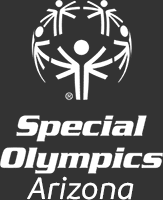Treatments for Down Syndrome
Treatments for Down Syndrome
Down syndrome is a common chromosomal condition that affects around 5,100 babies born in the United States each year. Individuals who are born with Down syndrome often have recognizable physical, cognitive, and behavioral symptoms. Despite the similarities in Down syndrome symptoms, these individuals will all have differing abilities. The differing abilities that occur among individuals with Down syndrome require a nuanced and comprehensive approach to address the unique challenges and opportunities faced by each unique individual. While there is no one-size-fits-all solution, a combination of therapeutic interventions, early educational support, and collaborative care can significantly impact the quality of life for individuals with Down syndrome. The Special Olympics Team is diving into the multifaceted treatments available, aiming to empower individuals and their families with a comprehensive understanding of the options at their disposal.
Early Intervention and Educational Therapy
The journey toward maximizing the potential of individuals with Down syndrome begins with early intervention and tailored educational therapies. Recognizing the importance of addressing developmental delays during the formative years, specialized educational interventions are designed to cater to the unique learning needs of each individual. Early intervention programs often bring together a team of dedicated professionals, including speech-language therapists, occupational therapists, and educators. Collaboratively, they develop personalized learning plans that focus on cognitive development, motor skills, and social interaction. The goal is to lay a strong foundation for future growth and independence.Â
Treatment for individuals with Down syndrome will vary greatly from individual to individual due to differing abilities and each person’s unique situation. Working closely with a team of professionals and gathering resources and information from your community will help you determine what is best for your child and their abilities. Children with Down syndrome are eligible for free, appropriate public education that is designed to serve their abilities and help them focus on cognitive development and enhancing life skills.
Treatment Therapies
There are a number of different therapies that children and adults with Down syndrome may use throughout their lives to continue achieving the greatest possible development, independence, and productivity. Some of the more commonly recommended therapies include:Â
Physical Therapy
Physical therapy emerges as a cornerstone in the treatment plan for Down syndrome. The focus is on addressing motor skill development, coordination, and overall physical well-being. Skilled physical therapists guide individuals through exercises that enhance muscle strength, improve balance, and increase flexibility, fostering optimal physical development. Physical therapists can work with an individual’s unique abilities to determine the best way to tackle physical activities. Many individuals with Down syndrome will work with a physical therapist for many years to address their motor skills and physical abilities.
Speech-Language Therapy
Speech-language therapy plays a pivotal role in breaking down communication barriers for individuals with Down syndrome. Therapists work diligently to improve speech articulation, language comprehension, and social communication skills. The ultimate aim is to empower individuals to express themselves effectively and engage meaningfully with their surroundings. Communication can be an ongoing challenge, and many individuals with Down syndrome will benefit from having access to speech language therapy in a school setting as well as later in life.
Occupational Therapy
Occupational therapy becomes a vital component in nurturing independence and daily living skills. Therapists collaborate with individuals to enhance fine motor skills, address self-care routines, and introduce adaptive techniques. The overarching objective is to equip individuals with the tools they need to navigate daily tasks with confidence.
Emotional & Behavioral Therapies
Recognizing the emotional and behavioral dimensions of Down syndrome, therapists implement strategies to foster emotional well-being and address behavioral challenges. These interventions focus on managing emotions, developing social skills, and ensuring a supportive environment that promotes mental health.
Drugs & Supplements
While there is no specific medication for Down syndrome, individuals may be prescribed drugs or supplements to manage associated health conditions. For instance, medications may be recommended to address thyroid dysfunction, a common occurrence in individuals with Down syndrome. Collaborative care involving healthcare providers and families ensures a holistic approach to managing health.
Assistive Devices
Assistive devices play a crucial role in enhancing the independence and overall quality of life of individuals with Down syndrome. These devices, ranging from adaptive tools to communication devices and assistive technology, are tailored to individual needs. By incorporating these devices into daily life, individuals can overcome challenges and participate more fully in their communities.
Team Care
Comprehensive care for individuals with Down syndrome thrives on a multidisciplinary team approach. This collaborative effort involves pediatricians, geneticists, therapists, educators, and other specialists. The synergy created by this team ensures a holistic understanding of the individual’s needs and allows for the development of a tailored treatment plan.
The treatment landscape for Down syndrome is rich and multifaceted, encompassing early interventions, therapeutic approaches, and supportive strategies. It is a testament to the progress in medical and educational fields that individuals with Down syndrome can lead fulfilling lives at home, in educational settings, and within their communities. With a person-centered approach that recognizes and builds upon individual strengths, the journey of individuals with Down syndrome is one of continuous growth, development, and community integration. Through ongoing research and a commitment to personalized care, the future holds the promise of even greater possibilities for those with Down syndrome and their families.



